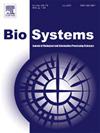人类推动的栽培植物进化和早期文明的起源:尼古拉-瓦维洛夫作品中的新石器革命概念。
IF 2
4区 生物学
Q2 BIOLOGY
引用次数: 0
摘要
尼古拉-瓦维洛夫(Nikolai Vavilov,1887-1943 年)提出的栽培植物起源中心(作物生物多样性热点)概念对于理解人类文明的起源和演变至关重要。瓦维洛夫提出了新石器时代农业革命的原则,并证实了农业文明出现的基本模式。他确定,具有栽培潜力的植物的物种分化中心决定了初级文明的起源。人类积极选择具有宝贵特性的植物,从而形成了新的栽培物种和品种,而这种无意识的人为进化的起点是起源中心遗传多样性的增加所带来的潜在有用性状的存在。具有重要农业价值的栽培品种从原产地中心传播开来,导致了有益农业技术在大面积的传播。人类文明的建立源于人类与驯化动植物之间动态的准共生关系,人类驱动的进化成为人类社会转型和发展的重要因素。在增编中,我们介绍了尼古拉-瓦维洛夫与《新东方》杂志编辑部的历史学家和民族学家合作的档案资料。这些资料包括他写给伊利亚-博罗兹丁教授的信。本文章由计算机程序翻译,如有差异,请以英文原文为准。
Human-driven evolution of cultivated plants and the origin of early civilizations: The concept of Neolithic revolution in the works of Nikolai Vavilov
The concept of centers of origin of cultivated plants (crop biodiversity hotspots) developed by Nikolai Vavilov (1887–1943) is essential for understanding the origin and evolution of human civilization. Vavilov formulated the principles of the Neolithic agricultural revolution and substantiated the basic patterns for the emergence of agricultural civilizations. He established that the center of speciation of the plants that have a potential for cultivation determines the origin of primary civilization. Humans actively performed the selection of plants with valuable properties, which led to the formation of new cultivated species and varieties, while the starting point for such unconsciously human-directed evolution was the presence of potentially useful traits due to the increased genetic diversity in the center of origin. The spreading of agriculturally important cultivars from the center of their origin led to the propagation of beneficial farming technologies over large areas. The establishment of human civilization resulted from the dynamic quasi-symbiotic relationship between humans and domesticated plants and animals, which human-driven evolution became an essential factor for the transformation and dynamics of human societies. In the addendum, we present archive materials on the cooperation of Nikolai Vavilov with the historians and ethnologists from the editorial board of the journal “Novy Vostok” (“Nouvel Orient”). These materials include his letters to Professor Ilya Borozdin.
求助全文
通过发布文献求助,成功后即可免费获取论文全文。
去求助
来源期刊

Biosystems
生物-生物学
CiteScore
3.70
自引率
18.80%
发文量
129
审稿时长
34 days
期刊介绍:
BioSystems encourages experimental, computational, and theoretical articles that link biology, evolutionary thinking, and the information processing sciences. The link areas form a circle that encompasses the fundamental nature of biological information processing, computational modeling of complex biological systems, evolutionary models of computation, the application of biological principles to the design of novel computing systems, and the use of biomolecular materials to synthesize artificial systems that capture essential principles of natural biological information processing.
 求助内容:
求助内容: 应助结果提醒方式:
应助结果提醒方式:


